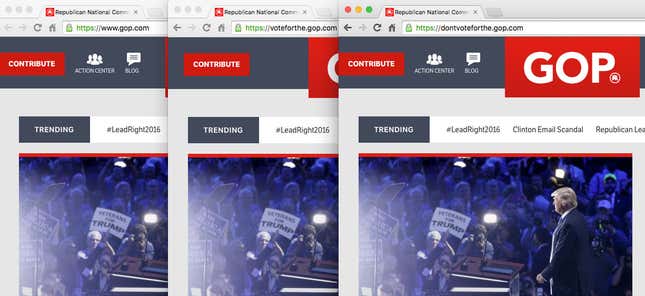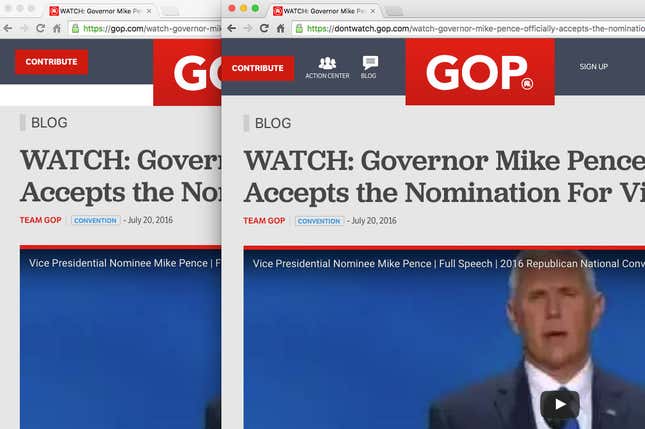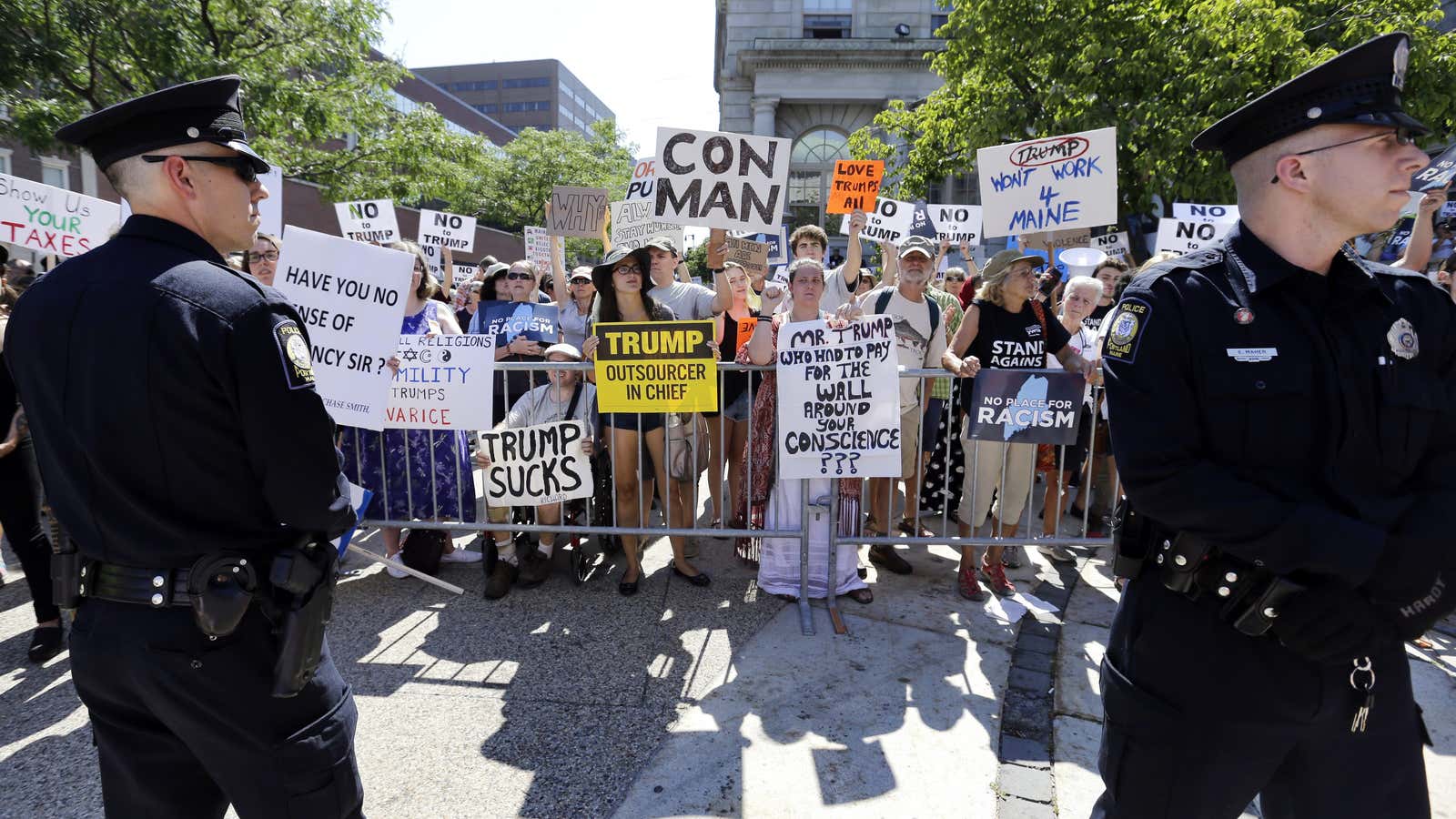It’s the digital equivalent of using a marker to deface a campaign poster; like scribbling “don’t” at the top of a “vote Trump” sign. Yet the Republican party has left itself open to this kind of tomfoolery when it has the power to prevent it.
The party’s website, gop.com, is configured to forward any subdomain it doesn’t recognize back to the top level domain. It means that anyone can share what looks like official Republican party website URLs even though they could contain defamatory, embarrassing, or offensive things.
For instance, voteforthe.gop.com sends you to the gop.com home page. So does dontvoteforthe.gop.com.

A video of Gov. Mike Pence accepting the party’s nomination for Vice President can be seen at gop.com/watch-governor-mike-pence-officially-accepts-the-nomination-for-vice-president as well as dontwatch.gop.com/watch-governor-mike-pence-officially-accepts-the-nomination-for-vice-president

The Republican National Committee did not immediately return my request for comment.
Using a wildcard to accept incoming internet requests is not uncommon, but it is by no means conventional either.
“The upside is if someone mistypes the www at the beginning of the URL they are still directed to the correct website,” according to Doug Madory a internet infrastructure researcher at Dyn, a company specializing in internet infrastructure. “On the flip side it could create a branding issue if people start circulating a website like DontVoteForThe.gop.com and it appears to be a valid URL.”
This isn’t the first time the party left itself open to digital vandalism. In 2009, it launched a URL shortening service that was quickly co-opted by pranksters who used the service to create links pointing to disreputable, controversial, mocking, and ironic websites. That service was taken down shortly thereafter.
